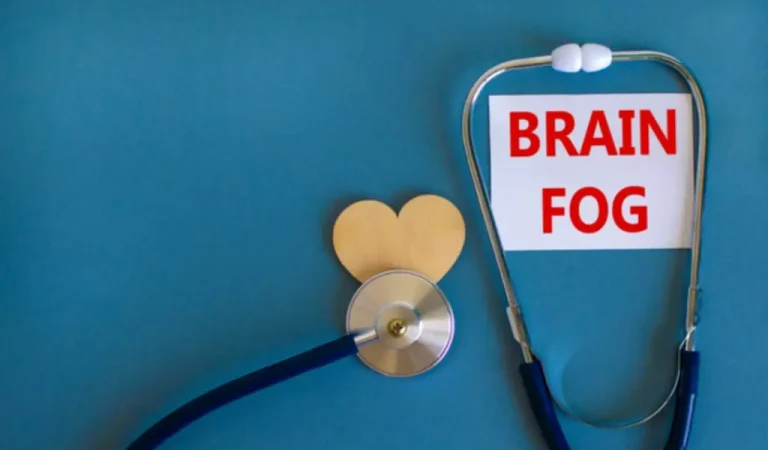Alcohol and Brain Fog: Clear Your Mind During Recovery

You can ask your doctor about using certain medications to treat alcohol-related brain fog. Some of these medicines include antidepressants or anti-anxiety pills which reduce alcohol cravings by altering the levels of certain neurotransmitters in the body. Other drugs that are used for treatment are DMAE, Ginkgo Biloba, Magnesium, or piracetam. It’s best to always consult your, doctor, before taking any medicine. Your body is working hard to clear out excess alcohol toxins while you battle intense alcohol cravings, so it makes sense that your ability to think clearly will be impaired during this time. The severity of these alcohol withdrawal symptoms isn’t limited to just physical symptoms.
A Timeline for Cognitive Recovery after Abstinence
- Recent research has shown that drinking alcohol can impact the production of certain neurotransmitters in the brain, leading to brain fog and other cognitive symptoms.
- In addition, exercise can also help to improve your sleep quality, which can further help reduce the symptoms of alcohol fog or brain fog in general.
- Some research says that might only happen in a few days, while others say up to six months.
- Many people find staying in an inpatient facility helpful because they can avoid the places they used to drink in.
- The fortunate takeaway for recovering addicts is that there are simple ways to feed and train your brain in order to regain mental clarity that is equal or close to where it was before addiction.
- In a recent cross-sectional study, she and other researchers studied the brains of 60 individuals who’d been diagnosed with alcohol use disorder and abstained from drinking for at least four weeks.
The body and brain can recover as well and new cell growth can be observed after substance use and alcohol use is stopped. The brain’s pleasure systems have been altered due to these modifications, causing the drinker https://ecosoberhouse.com/ to be more influenced by present rewards rather than delayed benefits. Addictive drugs such as alcohol provide fast intoxicating pleasures and impair a person’s impulse control and other higher cognitive functions.

Broken and Bleeding: Emotional Trauma and Substance Use Disorder
It can even happen after alcohol detox or alcohol rehab, as alcohol damage lingers in your body long after you quit drinking alcohol. Alcohol abuse can cause memory problems similar to those of dementia psychosis. Therapy and counseling can help tackle the root causes of alcohol addiction and brain fog. It can provide invaluable support by addressing underlying mental health issues and developing coping mechanisms to prevent relapse.
Long-Term Symptoms

Nevertheless, research focused on the brains of people recovering from alcoholism may still offer insight into what can happen whenever a person stops consuming alcohol. Use of this site constitutes acceptance of Sober Recovery's "Terms of Use", "Privacy Policy", "Cookie Policy", and "Health Disclaimer". The material on this site is for informational purposes only, and is not a substitute for medical advice, diagnosis or treatment provided by a qualified health care provider.
Find Alcohol Addiction Rehab
Liver damage can lead to a build-up of toxins in the blood, which can cause a range of symptoms, including brain fog. This is because alcohol can interfere with the absorption of nutrients and lead to poor dietary habits. Alcoholism is linked to an increased risk of brain damage, as well as other injuries, including head wounds and sleep apnea. Of course, brain shrinkage is only one of the alcohol withdrawal brain fog consequences of alcohol misuse, and substance use disorders can alter the neurotransmitters’ functions in the brain. According to several studies, people who have severe alcohol abuse disorders have smaller and lighter brains than those who do not. The rapid recovery of brain volume from alcohol-induced shrinkage is due to some factors, including the activation of neuroprotective pathways.
- When you are getting quality sleep, you will likely see a decrease in brain fog in recovery.
- They can meet new people and learn stories about how to live a sober life.
- This is because exercise can help to improve blood flow to the brain and reduce stress levels.
- At Monument, you can connect with a therapist specialized in helping people cut back on drinking, such as myself.
- Michael Le, MD, oversees our healthcare teams to ensure we provide the highest standards of care.
Reach out now and join our supportive
He takes joy in teaching them about their health and collaborating to improve their well-being. In return, they teach him invaluable lessons about life, family, and aging with grace. These relationships bring happiness and fulfillment to both Dr. Rubio and his patients. Becca is a seasoned healthcare operations leader, having served most recently as COO of the Optum Home-Based Medical Care business. She joined Optum as part of Landmark Health, the nation’s largest provider of in-home value-based care, which she initially joined in 2015. As the first central operations hire at Landmark, Becca built and led teams across the operations function, supporting significant growth during her tenure there.
- A healthy withdrawal program can help you detoxify your body and brain from the harmful effects of alcohol, and generally start your addiction treatment journey.
- Motivation plays a major role in addiction recovery, considering the rates of relapse.
- Connecting with others who have been through the withdrawal process can provide encouragement and remind you that things will get better with time.
- The health concerns of an alcohol use disorder are usually enough to cause someone to embrace moderation.
- It enhances the effects of gamma-aminobutyric acid or GABA (which produces calming effects).
Other Common Causes of Brain Fog from Alcohol
Alcohol use disorder is a serious condition that can lead to brain fog and other cognitive impairments. In fact, research has shown that walking can help improve brain function and reduce the risk of developing Alzheimer’s disease. Doing these brain exercises can help improve your brain function, memory, and concentration. In addition to eating brain-healthy foods, it’s also important to avoid processed foods as they can actually worsen brain fog. If you’re looking for ways to get rid of alcoholic brain fog, you’re in luck.
Alcohol Brain Fog After Drinking? Causes, Symptoms, and Treatment
This is because sunlight helps your brain produce serotonin, which is a neurotransmitter that helps regulate mood. Also, be sure to drink plenty of fluids before, during, and after exercise, as dehydration can actually worsen brain fog. Processed foods are high in sugar and unhealthy fats, which can lead to inflammation and impair brain function.


Leave a comment